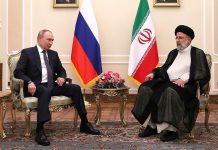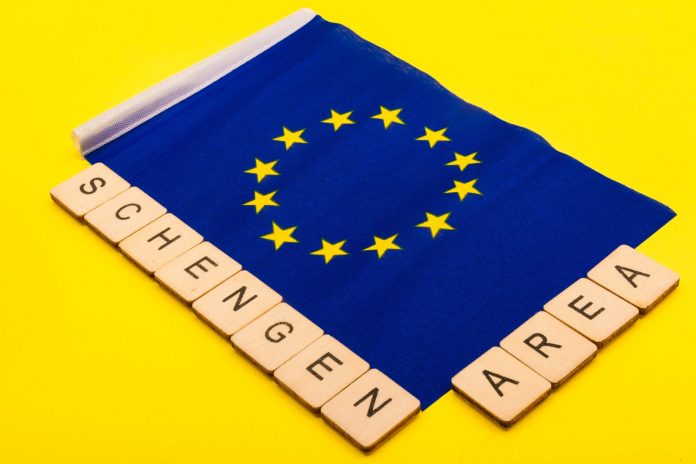The truth is the truth, no matter how much formal juggling Vienna and The Hague performed at the JAI Council on December 8th! Austria and the Netherlands joined hands and divided labor, ensuring that they could block Schengen access for two countries whose accession they had strongly signaled they did not agree with: Romania and Bulgaria.
Fair enough, the Dutch, after autumn’s bruising turmoil, played good cop with Romania and bad cop with Bulgaria on Thursday, while Austria took on the thankless task of short-circuiting Bucharest’s pathway.
The Austrian approach naturally raises questions not only in terms of its own internal policy, but also from a geopolitical perspective, in line with Vienna’s proven traditional sensitivity towards Moscow, especially since the signals from the top of the Austrian state have been bizarrely contradictory in recent weeks. But through the attitude shown on Thursday towards Bulgaria’s accession, the Netherlands itself massively complicated the case of Romania’s being co-opting into a very precious club, given the fact that Bucharest and Sofia had been sold as a package deal for years. However, in an ad hoc all-time top of responsibility or the broken shards on Thursday, the Austrian culpa still remains significantly higher than that of the Dutch.
What happened matters, of course, but even more important now is what we can do from here on.
From this point of view, as I wrote a month and a half ago, “nothing that corresponds to Romania’s strategic interest can be traded for Schengen. Neither our place in the EU, nor the commitment to this club, nor to the Euro-Atlantic spectrum, nor to the contribution to the inhibition of the Russian invasion of Ukraine is negotiable”. And, I emphasized at the time, “it would not be accidental at all for Bucharest to play its card honestly and coldly. That is, to convincingly present everything that qualifies it to enter the Schengen club, to highlight infinitely better than I have attempted here the vulnerabilities and internal contradictions of the Dutch argument, to refrain from national decisions and policies, in terms of rule of law and justice, which can not only tarnish the legitimate approach and claim to join Schengen, but also spoil the good progress and prospects of Romanian society”.
These are the things that would have come to us anyway, regardless of whether Thursday represented a success or not – even if, lo and behold, it turned out to be a failure. In any case, these things are fundamentally up to us to do, if we are really honest with ourselves when we say to the wider world and to ourselves that we want the strengthening, not the weakening, of our own country.
Romania’s goal must be to anchor itself as deeply as possible in Europe, and not loosening the screws that currently bind us to our partnership with the EU.
Obviously, through the nonsensical geopolitical vote, the petty political vote and historically narrow vote, the atmosphere created in Bucharest by Vienna’s gestures (especially Vienna’s) and the authorities in The Hague have the gift of complicating Bucharest’s pursuit of this goal. I am inclined to believe that on the Schengen axis things did not end on Thursday, when an important battle was lost, but when the fate of the “war” had still not been decided. Both the Romanian state and Romanian society, as well as strategic partners, still have levers and resources they can call upon to correct what went wrong.
What is true, at the same time, is that Romania is facing a challenge/opportunity that it has not had to deal with before: that of injecting a dose of testosterone into its relationship with partners who behave with hostility. From this perspective, Bucharest would by no means be a trailblazer, on the contrary, the path is well beaten. They resorted to pragmatic testosterone, on various files – from migration, to trade, food, economic policies – countries bigger than us and more partners with each other than is the case between Romania and Austria or between Romania and the Netherlands – the example of pragmatic clashes between France and Italy, for example, are already classics, as are those between France and Germany or the EU and the US. And everything worked without the partnerships, as a whole, being vitally endangered.
When making decisions, countries have to accept – whether they are ready to or not – the possible costs, not just the potential dividends. Austria (and from here on I will refer only to Austria, not to Holland, because it is unwise to open two delicate subjects at the same time) will have to be made to understand that nothing is free on behalf of others, just as nothing is free from Austria.
Vienna, by virtue of domestic policy issues and Russian sensitivities in its foreign policy, made a bad and indecently unfriendly decision regarding Romania. Coincidentally, Austria gambled on such a game precisely in relation to one of its sources of economic growth, Romania, considering the big businesses that this rather small country has here.
In the context of the abuse of power committed on Thursday, by the way it exploited the veto at its disposal, what has been profitable for so long may become a vulnerability from now on. Romania, using the philosophy of retaliation that, as I said above, other member states have resorted to when they felt wronged, has every right to pay more attention to this dimension. It obviously matters what can be done, but how it can be done. And Romania can make Austria feel how costly this is without the same Romania plunging into a hateful anti-European narrative contrary to its own interests.
In the excellent letter sent by Ambassador Emil Hurezeanu to the Austrian President, Alexander van der Bellen, Bucharest made known to Vienna, as early as November 25, “the concerns (…) regarding the dangers to which our exceptional partnership is currently exposed”, respectively “the risk of a rupture of the appreciated Austrian tradition in diplomacy and communication, which endangers our constructive coexistence until now”. (my emphasis).
In other words, once the warning has been sent, Bucharest has only to find clever formulas to follow through on it. Why? Because it can, it can afford to do so; then in order not to discredit itself, leaving the impression that words are not followed by deeds; last but not least, to counteract the predictable nationalist and populist outbursts of the anti-European and pro-Russian party in Romanian politics; finally, to send the necessary messages, just in case, to a Netherlands that, in the future, may be tempted to return to the “bad cop” game on the Schengen file concerning Romania.
At the same time, the strategic partners – the big European chancelleries, the European Commission and the USA – should have every interest in discouraging this primitive and provincial way of doing big and geopolitical politics in sensitive times, like that practiced by Austria (especially since it was seen how toxic such episodes were when they were enacted by Budapest and Warsaw).
Why? I pointed out two weeks ago:
“From the perspective of priorities, the war started by Putin in Ukraine shifted the center of gravity to the cohesion of NATO and the EU, to the ability of member countries to react quickly and decisively to paranormally difficult and numerous stimuli (caution: in wartime!) . And that required, among other things, the stimulation of the states to feel more than ever part of the whole which is urgently needed, including by recognizing certain merits from the immediate present and mitigating some frustrations that have been accumulating from the past”.
Romania needs Schengen to deepen its European integration and increase its well-being and security. And Europe and the USA need, in turn, precisely such a Romania.
There is a “next time” for Romania’s accession to Schengen, and there are resources and interest – internal and external – for the “next time” to become a reality within a reasonable time horizon. It is important! But the bull must be taken by the horns (by Bucharest and friendly capitals).
romania-recalls-its-ambassador-to-austria-over-schengen-rejection
















